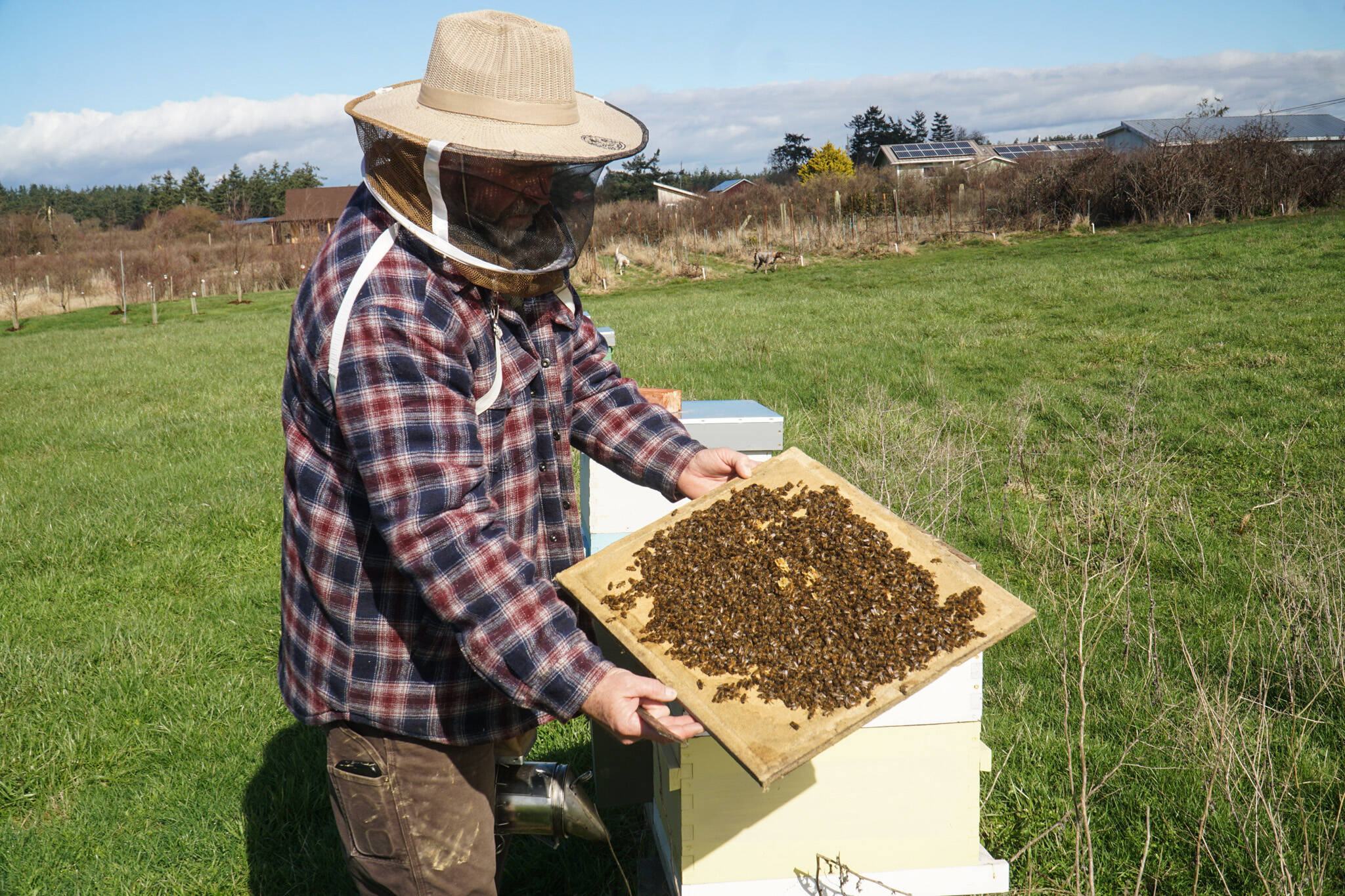Despite a cold past week, the mild winter on Whidbey may lead to an optimal spring for farmers, said Jeff Markette, Farm Manager at the Organic Farm School.
“It’s daringly dry out,” he said. “It’s shaping up to be a pretty good spring. That’s what we’re hoping for.”
Many farms in the Clinton area are getting their direct seeds out, he said, meaning minimal soil disturbance despite the windstorm in early January followed by two weeks of sub-freezing air.
That doesn’t mean farmers shouldn’t proceed with caution, he said. There’s always a chance for a random snow flurry. In general, Markette tends to ignore February in the case of a false spring and second winter. Sometimes farmers make the mistake of seeding early and then get smacked by another cold snap.
Markette’s overwintering crops, such as kales and brassicas which are hardy, froze and died this year during the cold part of January. With the changing climate, this problem could get worse each year, he said.
“If our winters keep getting harder, then farmers are going to have to pivot how they farm around here completely,” he said.
Although it’s a bit warmer than average, the weather won’t make a huge difference when it comes to produce, said Kyle Flack, co-owner of Bell’s Farm. Whidbey’s currently on track for an early spring.
Bruce Eckholm of Eckholm farms started with bees. Many springs, he opens the lid of a hive, and half the bees didn’t make it through the winter. This year, it’s not so bad.
All throughout his grass, purple dead nettle is just now starting to bloom, which is the best thing to give his bees some lasting sustenance, he said.
There are many variables determining how well the bees fare in cold weather, he said, but he tried new insulated lids this year to keep the water out, which was a contributing factor.
This will be Markette’s fourth spring at the Organic Farm School, and each has been drastically different. Last year was dark and cold and hardly felt like spring, he said. The year before, it felt like it never quit raining.
Weather fluctuation has been a major factor in the decision to discontinue strawberry farming at Bell’s Farm after over 70 years, Flack said.
Strawberries are temperamental with only about a four- to six-week harvest, and a bad season can affect profits greatly, he said. In 2022, with the cold spring and wet summer, the harvest was about half of what it should have been.
An equally important factor in this decision was the increased cost, he said. Since COVID-19, packaging such as berry boxes and pine boxes have risen by about 50%. With starting wages at $18, they cannot afford the damages caused by poor weather.
“We have what’s called June-uary here where sometimes June becomes rainy and wet,” he said. “You end up having a loss in terms of mold and soft berries.”
This can put farmers on their toes, Markette said. If the soil is too wet, they must move their seeds or plant different seeds altogether. The most common response is pushing seeding back, but that can have consequences. When the weather becomes nice, it’s crunch time. Otherwise, tomatoes, cucumbers, squashes and other summer crops can be delayed too.
When it gets warm, bees wake up, Eckholm said, and the second winter becomes hard on them. To combat this, he gives them extra pollen protein to keep them going until the flowers bloom.
Poor weather can also mean more crops starting in the greenhouse, which can take a bit longer than usual. But then the greenhouse can be backed up, and space becomes an issue.
At a certain point there’s only so much a farmer can do, Markette said.
“You just gotta trust your plan and your planning and just stick it out and not try to change anything up too much because you just gotta keep thinking it’s going to work,” he said.
The best way to handle weather swings is diversifying crops, Flack said. Different kinds of produce, as well as livestock, can guarantee a certain profit margin.
Markette is looking forward to the potentiality of an optimal spring.
“I wish a good luck to all the farmers and everybody,” he said. “All the farmers and my friends seem like they’re super excited. I think everybody is really pumped for this year.”



